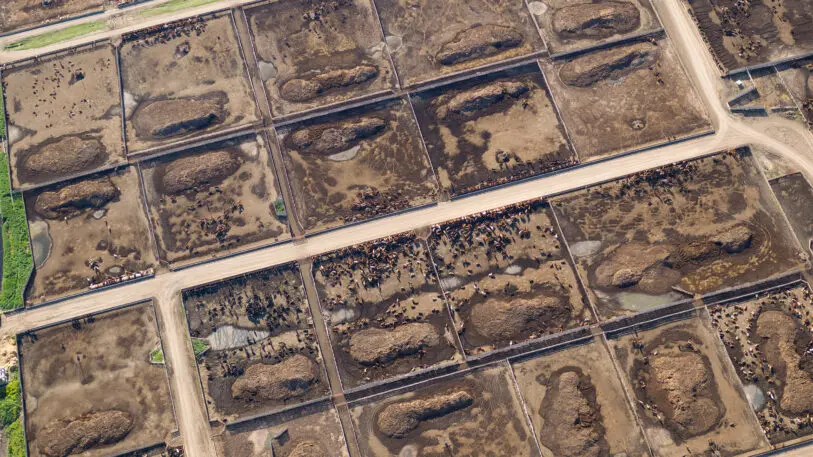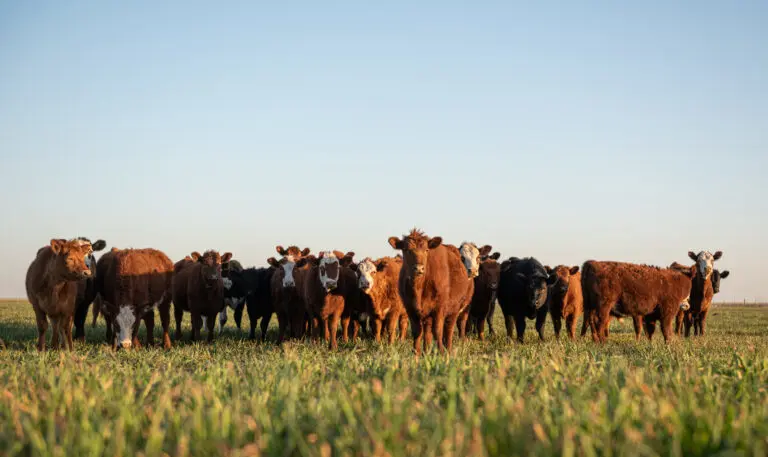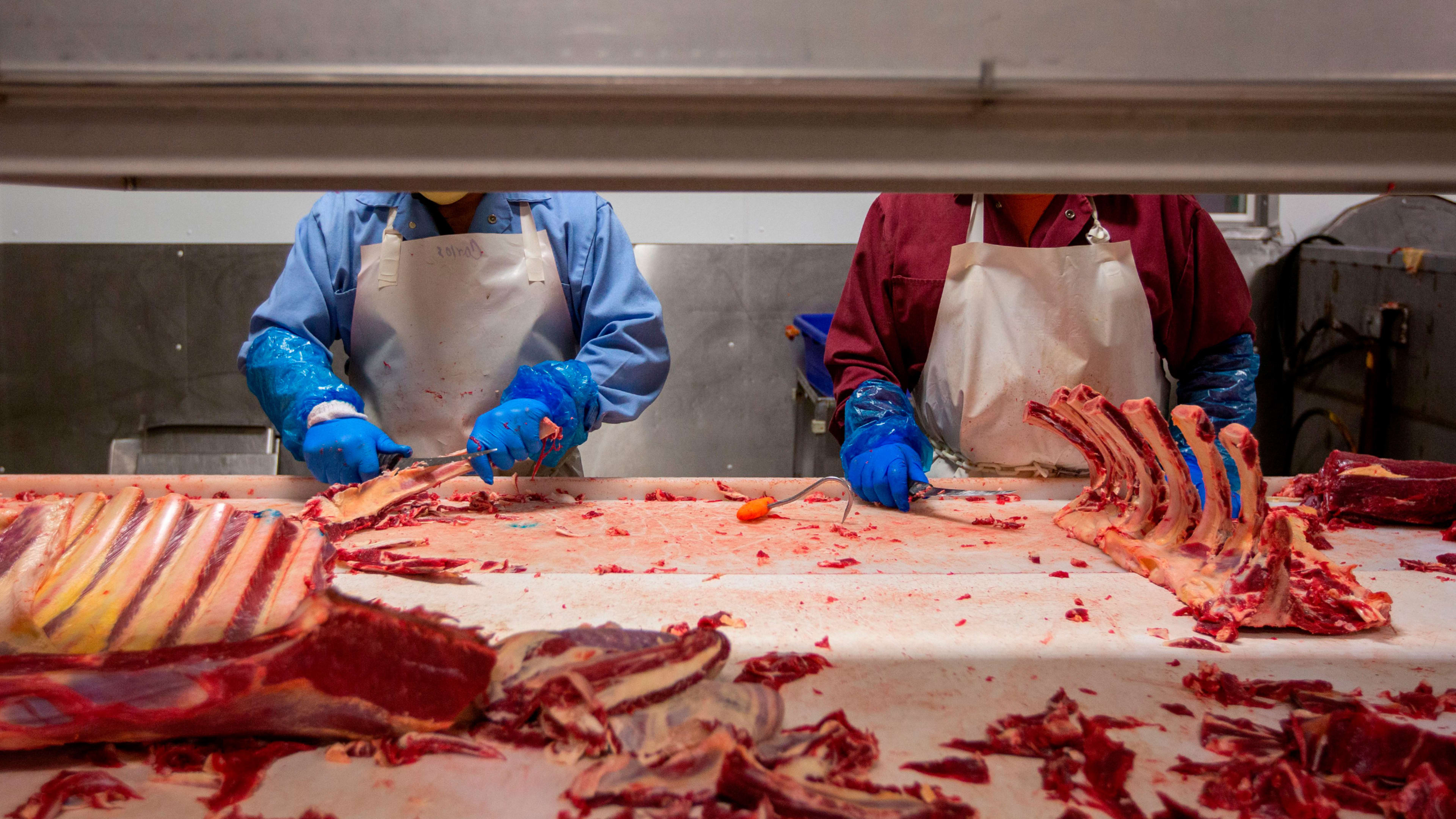Most discussions around the ethics of meat center on the animal—raising, processing, carbon footprints, and packaging—while so often neglecting the people behind that process. Even Whole Foods’ widely popular quality meat standards focus on everything but the farmer and the workers.
If we are to reimagine the way we eat meat, and do so in a way that’s truly humane, we must apply ethical standards to all aspects of food production and acknowledge what is required to meet them.
The people
As COVID-19 laid bare, inhumane conditions in large meatpacking plants extend to employees. Forced to stand elbow to elbow in a pandemic, line workers fell ill in record numbers. Sick workers without benefits had to choose between infecting their colleagues or forfeiting their already low pay. Plants shut down one after another, halting the food production that people relied on, while leaving both sick and healthy workers without the means to survive. Meanwhile, big meat companies looked to replace jobs with automation, rather than address animal and employee abuse.
We need to demand better treatment for meat and poultry workers. Small-scale processors, such as Cypress Valley Meat Company and Natural State Processing, are more likely to consider the well-being of both workers and animals when humane standards are directly tied to their core values.
Smaller plants, which operate more like family-owned local butcher shops than corporate meatpacking plants, value line workers because of their critical contribution. These artisans break down entire animals using trained skills that cannot be replaced by automation. Naturally given more space on the line to address workspace needs, they benefit from safer working conditions both in and out of a pandemic.

The land
Mass production by Big Ag has produced farming practices that destroy the land, preventing future generations from growing nutritious crops or raising healthy animals. Regenerative agriculture—farming that goes beyond sustainable to regenerate the land by creating healthy soil and increasing biodiversity—integrates livestock and crop production.
Frequently blamed for the negative impacts of agriculture on climate change, livestock are a necessary component of regenerative agriculture, when humanely raised by farmers who care about their land and animals.
The process
The manual labor that goes into regenerative farming directly contributes to both animal welfare and the cost of humane meat. Chickens live outside, rather than packed together on factory farms unable to move. They are fed by hand and moved daily, and their shelters must be manually staked down to protect them from wind and rain.
The cost of humanely moving animals to production is also higher (imagine kindly catching chickens). Collecting and crating chickens is labor-intensive, must be done at night, and requires multiple people.
After processing, the task of selling chickens also falls on the farmer, requiring them to be entrepreneurs and businesspeople in addition to farmers.
Fortunately, delivery services such as Grass Roots Farmers’ Cooperative have disrupted the current big-food system to provide smaller farmers with access to the market. Through an e-commerce platform, consumers are able to purchase safe, humane meat that can be tracked back to vetted farms.

The animals
Of course, we also must have standards for how animals are raised; this is part and parcel of a regenerative approach. If we address head-on the fact that industrial agriculture is not working—for animals, workers, or the planet—animal welfare will become the rule rather than the exception. Standards can become norms.
A new meat-mindset is needed, one that benefits the environment while still supporting viable livelihoods for farmers and workers. If we can address the full picture of the meat system—from the farmers to the treatment of the land and animals, to the conditions at meatpacking plants—we will also benefit as consumers from healthier, tastier meat.
Pierre Ferrari is the president and CEO of Heifer International.
Recognize your brand’s excellence by applying to this year’s Brands That Matter Awards before the early-rate deadline, May 3.
